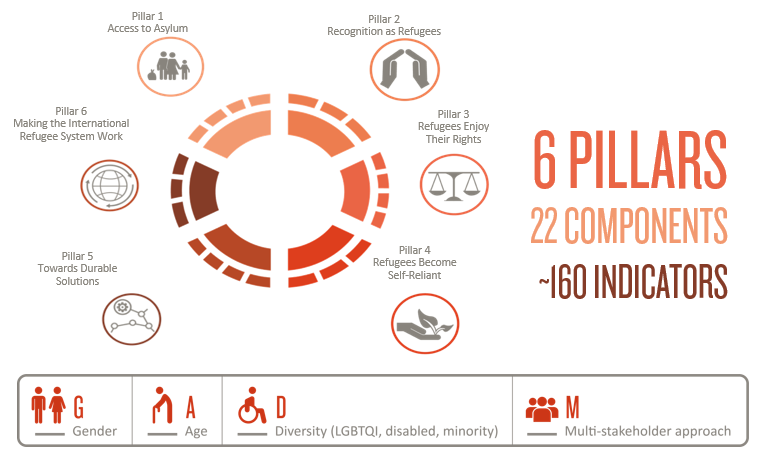March 3, 2021
Against the background of the Global Compact on Refugees (GCR) adopted by the UN General Assembly, the Refugee Response Index (RRI) sets out to assess and monitor countries’ response to and compliance with respect to responsibility-sharing while improving national and international action designed to protect refugees. Taking inspiration from the GCR and established principles of international refugee law and protection policy, the RRI is designed to cover each component of an adequate refugee response by States and is applicable to all countries hosting refugee populations or otherwise engaged in the global system of refugee protection.
A unique aspect of the RRI is that it is the first global Index with a specific focus on the well-being of refugees. As a comprehensive and independent assessment tool, it is envisaged that the RRI will help identify both positive practices and unmet needs with a view to informing the development of appropriate responses to counter restrictive policies and practices towards asylum seekers, refugees and other persons in refugee-like situation.
The RRI is comprised of 6 pillars, 22 components and 160 indicators. Similar to the methodology of other Indexes developed in the areas of humanitarian response, development issues, business relations and gender equality and representation, the RRI has been developed as an extensive questionnaire to collect both qualitative and quantitative data over a range of issues including access to asylum and recognition as refugees or other protected persons, through to durable solutions and enjoyment of rights.
With generous support from the European Commission (DG-INTPA), the RRI was finalized and is currently being pilot test in Costa Rica and Kenya. Experienced researchers in both countries have been engaged to conduct the data collection and provide feedback on the methodology, with a view to publishing the results in the coming months.
The country research team in Kenya is comprised of Dr Michael Owiso and Dr Dulo Nyaoro; and Costa Rica, Dr Koen Voorend and Dr Juan José Guillarte are leading this work.
An important aspect to the success of the pilot phase will be the quality and diversity of information and views and data collected. In this effort, the RRI Project Team and country researchers are reaching out to a broad range of actors including international, government and non-governmental organizations, as well as members of the refugee community.
Should you wish to learn more about the RRI process or be in contact with the country research teams, please reach out to: Ms Alesia O’Connor, RRI Project Coordinator, aoconnor@daraint.org or Ms Julia Durand, jdurand@daraint.org

Share this